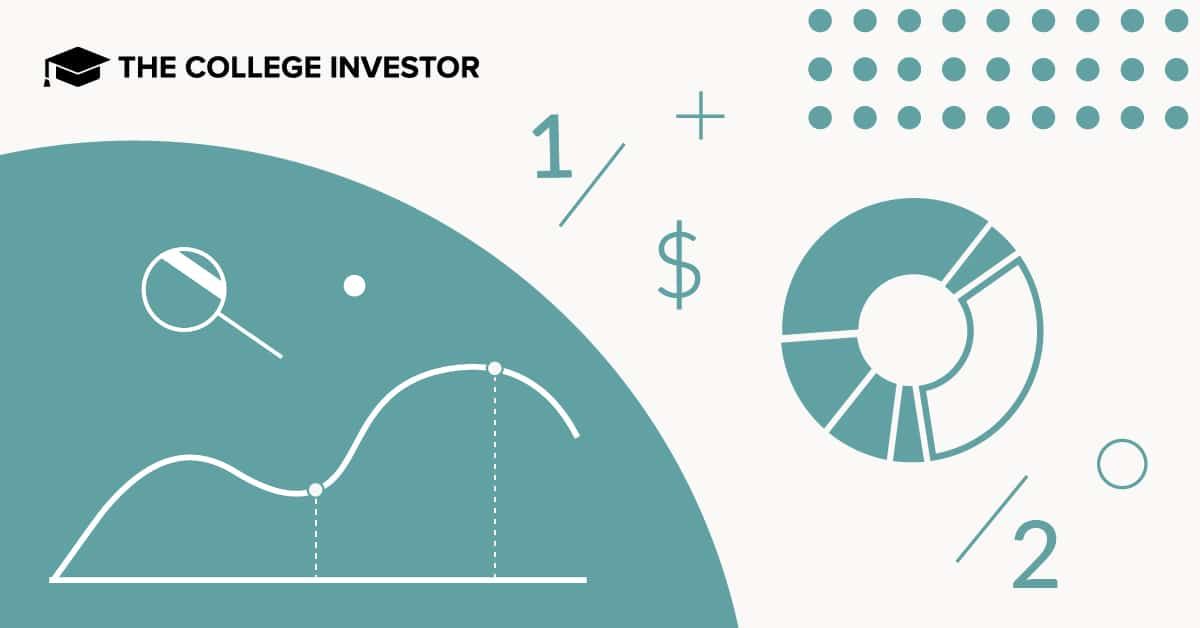
Fractional shares can make investing accessible to everyone, especially people who don’t have the funds to satisfy hefty account minimums. Instead of having to purchase 1 share of stock that may cost $500, you can instead by a fractional bit of it - for maybe $10.
Fractional shares make investing more accessible by lowering minimums. For example, one share of Berkshire Hathaway (of the famous investor Warren Buffett), currently trades at $617,880. Yes, that's correct.
Historically, you'd have needed to buy 1 share minimum. But with fractional share trading, you can now simply by as little as $10 worth.
Where Can You Trade Fractional Shares
Now that you know more about fractional shares, take a moment to review some of the companies listed below to get started with investing in fractional shares.
Fractional shares are growing in popularity, and with new apps and companies that provide an investment plan for any budget, you will be confidently investing in your portfolio in no time.
1. Fidelity
Fidelity has long been our top pick for a full service brokerage, and earlier this year, they announced fractional share investing. You can buy and sell fractional shares of individual stocks and ETFs on their platform commission-free.
This is a huge win for investors getting started with just a little bit of capital.
Check out Fidelity here, or read our full Fidelity review here.
2. Public
Public is one of the newest commission-free brokers that allows app-based investing. But what sets them apart is that they also allow fractional-share investing.
You can invest in fractional shares on the platform, and still enjoy commission-free trading. They don't allow day-trading, and fractional share investing does take slightly longer to settle.
Read our full Public Investing App review here.
3. Robinhood
Robinhood has been the biggest player in commission-free investing for years, revolutionizing the industry with app-based investing several years ago.
However, Robinhood just announced that they will support fractional share investing, and allow Dividend Reinvestment (DRiP). This is huge because we already name Robinhood one of our picks of the best places to invest for free. Adding in this feature makes them a more robust investing platform.
Read our full Robinhood review here.
4. Schwab
Schwab is one of the largest brokerages in the United States, and they have recently launched fractional share investing. They recently launched fractional share investing with what they call Schwab Stock Slices.
To invest in fractional shares at Schwab, you do need to invest at least $5. Also, they limit fractional shares to companies listed in the S&P 500 - which is a good selection, but not every stock.
Read our full Schwab review here.
5. M1 Finance
M1 Finance is our favorite place to buy fractional shares to invest because they offer FREE investing! Yes, you read that right - commission-free investing. However, you need to maintain a minimum balance of at least $10,000, or they'll charge you a monthly fee.
M1 Finance allows you to invest in a basket of stocks or ETFs (your portfolio), and when you deposit new money, it will buy fractional shares in all the companies in your portfolio.
Plus, if you have a certain allocation you're going for, it will buy shares to help you maintain the proper allocation.
Check out M1 Finance here, or read our full M1 Finance review here.
6. Betterment
Betterment is a company that offers fractional shares of ETFs invested into a curated portfolio. Betterment allows you to invest in thousands of companies across the world with minimal risk.
Betterment has 3 portfolio strategies:
The SRI (Socially Responsible Investing) portfolio, Goldman Sachs Smart Beta portfolio, and the BlackRock Target Income portfolio. The SRI portfolio allows you to invest based on your values while keeping fees low.
Investors who select Betterment’s Goldman Sachs Smart Beta portfolios can use Goldman’s ActiveBeta™ equity and Access Fixed Income funds.
The BlackRock Target Income portfolios are based on bonds and designed for investors who are looking for a low risk portfolio with steady income.
Betterment also has a Cash Reserve account that lets you earn much higher interest than a regular savings account.
Check out Betterment here, or read our full Betterment review here.
7. Stash
Stash is a popular option for investors looking for accounts with low minimums and expert guidance. With Stash, you can invest in a curated selection of exchange-traded funds (ETF's) or purchase fractional shares of stocks through a mobile platform. Stash provides some personalized investment recommendations based on your responses to several questions.
Their fees are reasonable, at anywhere from $1 to $9 per month. You can choose from a selection of ETFs preselected by their financial experts. Stash also provides educational content tailored to your unique investing profile.
For convenience, you also have the option to set up automatic investments to your portfolio. Companies like Stash can buy one share and split it into fractional shares, and you can get started and own a fraction of a share for just $5.
Read our full Stash Investing review here.
8. Webull
Webull is a free investing app and rival to Robinhood. It allows you to buy stocks, ETFs, and crypto in the app - as well as fractional shares starting at just $5. There are no monthly fees or minimums. You can choose fractional shares of more than 1000 stocks and ETFs.
As with everything at Webull, it's $0 to invest - including in fractional shares.
As a bonus, if you open a Webull account, you'll get up to two free gifts of stock. One free stock valued from $3 to $300 if they open Webull brokerage account and another valued from $8 to $2,000 if you direct deposit at least $5. Check it out here >>
Read our full Webull review here.
What Is Fractional Share Investing?
How do you invest regularly when it costs so much to open an account or buy shares?
Fear not, this is where fractional shares come into the picture. Fractional shares allow you to buy fractions of a whole share, just as the name suggests.
With fractional shares, you can invest in multiple funds based on what you can afford.
You can even purchase enough to invest just $30 per week! While some of the platforms still have account minimums, fractional shares can help you reach your goals faster than investing in whole shares.
Let’s take a closer look at how fractional shares work.
How Can You Benefit From Fractional Shares?
Fractional shares allow you to buy fractions of stocks in companies that have a high price per share.
More importantly, you can immediately start using all cash available for investing because you no longer have to wait and save up the minimum funds needed to open an account.
As a result, you get access to shares you may not have otherwise been able to afford.
Most companies issue stock in whole units known as shares, which are then traded on the open market. Because the stocks are issued and traded as whole shares, most brokers restrict investors to buying and selling stock in whole share quantities.
Surprisingly, you could still end up with fractional shares due to stock splits and dividend reinvestment plans, even if you only trade stocks in whole shares.
Getting started is easy.
First, you set the dollar amount or amount of shares you wish to purchase. Next, the platform will calculate the amount of shares or dollar amount needed to meet that number of shares, regardless of whether it is a fraction.
Fractional Shares Add Flexibility
Investors can leverage the benefits of trading fractional shares by getting access to stocks that they normally would not be able to afford if they were forced to purchase whole shares.
If you’re on a budget and want to limit the amount spent on a trade, fractional shares can help you buy high priced stocks such as Priceline (PCLN) with shares traded between $1,148.06 and $1,927.13 per share in the past year.
Fractional shares can be advantageous when you don’t want to spend a lot of money on a trade, but wish to purchase a stock that has a higher price per share.
Put All Of Your Cash To Work
Since you control the amount you spend, fractional shares allow you to put all of your available cash into the market immediately- no need to wait until you raise enough cash to meet the account minimum or enough funds to buy one share.
If you don't invest with fractional shares, you'll end up with random amounts of left over cash just sitting in your account going to "waste".
Calculations Are Done For You Based On Your Budget
This is a huge plus for those of you that don’t like to do math- you don’t have to calculate how many fractional shares of a stock or exchange-traded fund (ETF) you want to buy or sell.
All you have to do is input the dollar amount for each trade or the share amount, and the calculations will be made to meet your goal!
Most fractional shares are eligible for dividends just like full shares.
Since you are able to make regular investments that meet your budget, it will be easier to invest on a regular basis for the amount you choose.
Final Thoughts
Before you begin investing with fractional shares, learn the basics and read up on best practices in building your portfolio.
We have put together a list of the best investing blogs and investing podcasts to follow, as well as ways to learn about investing when you are just starting out.
Now that you’ve learned the benefits of fractional shares, how will you put more of your money to work? Have you ever bought or sold fractional shares? If so, we’d love to hear about your experience in the comments section below.

Robert Farrington is America’s Millennial Money Expert® and America’s Student Loan Debt Expert™, and the founder of The College Investor, a personal finance site dedicated to helping millennials escape student loan debt to start investing and building wealth for the future. You can learn more about him on the About Page or on his personal site RobertFarrington.com.
He regularly writes about investing, student loan debt, and general personal finance topics geared toward anyone wanting to earn more, get out of debt, and start building wealth for the future.
He has been quoted in major publications, including the New York Times, Wall Street Journal, Washington Post, ABC, NBC, Today, and more. He is also a regular contributor to Forbes.
Editor: Clint Proctor






